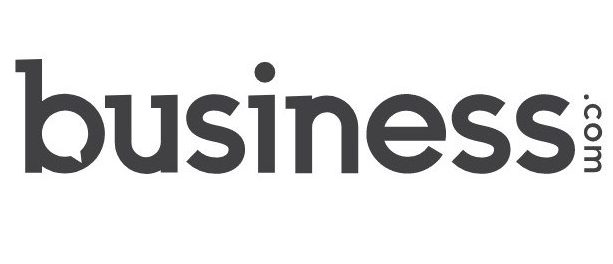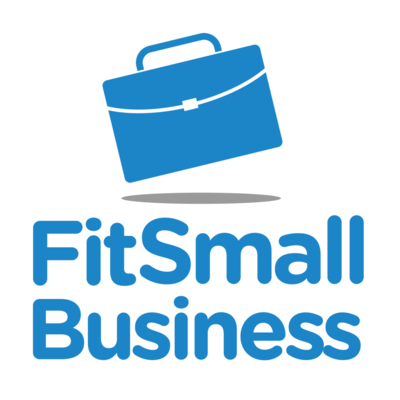Tip of the Law – Building a Client-Centered Law Firm | Domenic Romano
Date: November 7, 2024
In this episode of Tip of the Law, Joe Giovannoli and Domenic Romano discuss how law firms can adopt entrepreneurial strategies to thrive in a competitive market.
On this episode of the Tip of the Law podcast, host Joe Giovannoli sat down with founder and managing partner of Romano Law, Domenic Romano. Romano has built an impressive entrepreneurial law firm that stands out in an industry often criticized for its risk-averse and traditional approach. In this episode, Romano shared insights into his journey and the key principles that have guided his firm’s growth and success.
Romano’s path to entrepreneurship began after a decade of experience at a large law firm, where he observed firsthand the tendency for lawyers to default to “legalese” rather than providing straightforward, practical advice to business clients. Determined to take a different approach, Romano founded his own firm 21 years ago with the mission of “demystifying the law” and helping clients “find calm” amidst the complexities of running a business.
From those humble beginnings, Romano Law has expanded to multiple offices across the country, offering a range of services tailored to the needs of entrepreneurs, creative professionals, and growing companies. A key to this growth, Romano explains, has been his focus on building a team of “A players” – top talent who not only possess exceptional legal skills, but also embody the firm’s values of clear communication, responsiveness, and a relentless drive to exceed client expectations.
“Hiring an A player,” Romano says, “never loses me money in the intermediate or long term.” He emphasizes the importance of a thorough vetting process, involving multiple interviews, reference checks, and a willingness to wait for the right fit, rather than settling. This “always be hiring” mentality has allowed Romano Law to stay ahead of the curve, building a bench of talent that can support the firm’s evolving needs.
Equally crucial to Romano’s success has been his embrace of an entrepreneurial mindset, rather than the risk-averse approach he often observed in the legal profession. As he explains, “business is all about identifying smart risk and making the most of it.” This mindset has manifested in the firm’s willingness to experiment, test new ideas, and pivot quickly when necessary – a stark contrast to the “this is how it’s always been done” mentality that can plague more traditional law firms.
Perhaps Romano’s most valuable piece of advice, however, is the importance of maintaining a “beginner’s mentality” – continuously challenging assumptions and remaining open to learning, even after decades of experience. “Complacency is death,” he warns, emphasizing the need to stay ahead of industry changes and evolving client needs.
This commitment to innovation and adaptability has served Romano Law well, allowing the firm to differentiate itself in a crowded legal landscape. By blending entrepreneurial savvy with exceptional legal expertise, Romano and his team have built a thriving practice that puts the needs of business owners and creative professionals first.
As the legal industry continues to evolve, Romano’s insights offer a roadmap for other law firm leaders seeking to break free from the constraints of tradition and embrace a more dynamic, client-centric approach. After all, as Romano himself puts it, “what got you here won’t necessarily get you there” – a lesson that applies as much to the practice of law as it does to any other business venture.
Key takeaways
- Hiring and retaining top talent (“A players”) is critical for scaling a professional services firm like a law firm. The “always be hiring” mentality and thorough vetting process are important.
- Adopting an entrepreneurial mindset and continuously challenging assumptions is crucial for a law firm leader, rather than just focusing on the practice of law. Embracing innovation and change is key.
- Emphasizing clear, responsive communication and follow-up is a differentiator in the legal industry and important for both client service and the hiring process.
Episode Transcript
Joe Giovannoli
You’re listening to the Tip of the Law podcast, where legal insights meet practical advice. In each episode, we bring you stories, insights and tips straight from the legal industry’s brightest minds. I’m your host, Joe Giovannoli, founder and CEO of 9Sail. This week, I’m speaking with Domenic Romano, the founder and managing Partner of Romano Law. With years of expertise in business and entertainment law, Domenic has established a practice focused on offering clients in a variety of industries knowledgeable legal advice. His leadership and strategic approach have helped Romano Law establish itself as a trusted firm for both businesses and creative professionals. Domenic demystifies the complexities of business and entertainment law, assisting entrepreneurs in scaling their businesses and advising creative professionals on legal issues. He offers practical, tailored solutions to meet the specific requirements of businesses and creatives alike. Domenic approaches each legal challenge with a thoughtful, hands-on approach, whether he is advising emerging startups or established companies. You might recognize Domenic from his numerous appearances on various news channels as a trusted legal correspondent. Without further ado, let’s get started. Domenic, thanks for joining me today on the Tip of the Law. How are you?
Domenic Romano
Great to be here, Joe!
Joe Giovannoli
Awesome. Yeah. Thank you so much we’ve had, we’ve had such a great partnership and relationship with you and your firm, Romano Law, over the years, and super excited to have you on to talk about a little bit more about Romano Law.
Domenic Romano
I appreciate it, man. Honestly, you guys have been great for us, great for our firm over the years. Really appreciate everything that your team does for us from a search engine optimization perspective.
Joe Giovannoli
Thank you. Yeah, we love the work that we do, and your team is amazing as well. So a lot of love all the way around. So before we get started here, I’d love for you just to do a quick intro of yourself and of your firm. And you know, I know today we’re going to talk about what it’s like running an entrepreneurial law firm. It’s something that is, you know, kind of rare these days, and something that not every firm can say so. But before we do that, just tell us a little bit about yourself. And you know what really made you get into owning your own law firm?
Domenic Romano
Yeah. So I’m the Founder and Managing Partner of Romano Law PLLC. We’re a business law firm. We are located primarily in New York, where our first office is, but we’re also in Miami, in South Florida, in California, San Francisco, LA and San Diego, and more recently, in Houston, Texas and in Maryland.
Joe Giovannoli
That’s awesome. Tell me, why did you decide that you were going to go out and start your own law firm?
Domenic Romano
Well, my philosophy is, there’s a lot of techno speak when it comes to legal services for business. And I started with the premise that the average business owner would prefer legalese to be available, you know, on request, not as a default. The typical professional or the typical business owner prefers straight talk, in my experience. And so I had 10 years of big law experience when I started this firm 21 years ago. And essentially the mission is to demystify the law, to help clients find calm, to ignite remote growth and success by reducing legal stress.
Joe Giovannoli
Yeah so that’s that’s awesome, and it is really important for you know, our listeners to know, again, in the note of you came out of big law, right? And you kind of saw how clients were being spoken to, right? You know, they were getting, as you said, legalese and, and, you know, you definitely set out to be the business owners lawyer, right? So how did you decide what practices you were going to support through this. Obviously, you know, business owners are a big part of who you work with.
Domenic Romano
Corporate Law is what I knew. I was a M&A and securities lawyer, and for large, much larger public companies. So I took that experience and first started focusing on business law, or corporate law in a smaller SMB setting. And then, you know my brother, my younger brother, Rino Romano, who’s been a working actor pretty much since he was seven, so his whole life. So through him, I had some entertainment contacts, and I had experience advising some of his friends and industry people informally before I started my own practice. So within a few months, I added that practice area so it was business and just business and entertainment law for the first few years, and then employment law is a natural outgrowth of business law, and started adding attorneys, litigators, with specialization there and then litigators and commercial disputes was the next area. It makes sense you write contracts to keep people out of trouble, but sometimes, and negotiate agreements to keep them out of trouble, but sometimes things happen outside of the expected norm where people come to us with, would come to us with a legal dispute, an active litigation, or an active arbitration, or something that was sliding into that, into a mediation. So we added that component. And you know, intellectual property, trademarks and copyrights in particular, are natural outgrowths of our entertainment practice. So essentially, we’re focused on business in the entertainment, employment, dispute resolution realm and intellectual property representing entrepreneurs and stakeholders and creative professionals.
Joe Giovannoli
Yeah, that’s awesome. You guys have really built such a cluster of services that, you know, dove tail so nicely together and for a really nice range of client types. And I know, you know, one of the biggest things, and you say creatives, but you know, you’re one of your good sweet spots is agencies, right? You know, creative agencies, web design development companies.
Domenic Romano
Yeah, advertising agencies, branding companies, creative professionals and creative businesses, film and television production companies. We do quite a bit of representation in film and television at all entities delivering content to the networks, to the streamers, to the studios, on budget and on time. And they have very particular needs. They need practical legal advice turned around in a very timely, responsive way. If they’re sure they’re shooting on the weekend, they’re shooting late at night, they might need to pick up the phone and talk to someone. Can we do this? What are the ramifications of making this choice on set or in post production, or even pre production, acquiring rights and licensing? Yep. So that’s been a very involved area for us over the years.
Joe Giovannoli
So you and I met through Entrepreneurs Organization, right? EO is a global organization.
Domenic Romano
I love EO!
Joe Giovannoli
Yeah, we could talk about that for hours.
Domenic Romano
It’s a 501, c6, here in the US, it’s an international organization. It’s a nonprofit. It’s the largest organization of business owners in the world. I’ve been a part of it for about 10 years. I know you have been almost as long. And it’s not a networking group. It’s a peer to peer learning organization. Different countries have different entrance requirements and different chapters. There’s a chapter in almost every major city in the world. In the United States, typically, with some exceptions, the entity needs to have gross revenue of at least seven figures, and the qualifying member must either be a founder or a co-founder or a controlling interest holder. So founder, co-founder or controlling interest holder of an entity that has at least seven figures of gross annual revenue. But of course, there are businesses of much larger, larger scale, and a lot of serial entrepreneurs and business owners. And what I have found, Joe, throughout the years is law is a very risk averse profession, and lawyers are trained in law school to run away from risk and not embrace it in any way. And you and I know that business is all about identifying smart risk and making the most of it. You know as Warren Buffett says he is to be fearful when others are greedy and greedy when others are fearful. EO, our Entrepreneurs Organization, provides a canvas and an environment for experience sharing and for growing as professionals and as business owners, which I find very valuable.
Joe Giovannoli
Yeah, no, it really, it’s been transformative for my business. And I know you and I talk about this literally all the time, but, you know, I want to ask you an interesting question, right? So we have some lawyers in EO you know, New York, Long Island. You know, there are definitely lawyers in New York, but it is not always common for a managing partner, founding partner, managing partner of a law firm, to look at themselves as an entrepreneur, and you, you’ve embraced that, that life and culture, right? So my question to you is, at what point in the life cycle of owning your law firm, did you decide that you were going to take the approach, not as a practicing Managing Partner, which you do practice, right? But not as a practicing Managing Partner, but as an entrepreneurial-minded, CEO-minded attorney.
Domenic Romano
Great question. I frankly, enjoy both I still love, after 31 years, client counseling or corporate counseling, the strategy, the advisory, the listening, the problem solving that’s really a lot of fun, and the negotiation aspect, trying to get the client the best possible deal, but at the same time, realizing that they have to live with whatever the consequences are so not a deal so good that they can never live up to it, right? And that, over time one discovers that that’s an art. It’s not necessarily a skill. So that’s the practice side. But what I’ve learned about myself the last 10 years, really being part of that EO family, is what I enjoy just as much, and sometimes a little bit even more, is trying to figure out the Rubik’s cube of how to effectively scale a professional services firm, how to deliver better services to clients, and how to do so in a manner that’s good for the client, but also good from a business perspective.
Joe Giovannoli
Yeah, and you your firm has always, your firm has always done that, you know, just as long as I can remember that we’ve known each other, I know we’ve always had conversations about, you know, doing things differently, and, and, and, you know, finding, finding ways to be, you know, just, just different, right? And, and I envy that. And you have brought on a lot of entrepreneurial minded people to surround you at the firm that really helped to further, you know, keep that, that, that flame burning, if you will, right?
Domenic Romano
So, I used to think– it’s funny you said that because I used to think that, you know, growing a law firm, or growing a professional services firm was all about finding and retaining great clients, better clients, bigger clients. That’s kind of true. It’s true. It’s not untrue, but a better, faster, way more effective way to scale a professional services firm, especially a law firm, is to find and retain great talent, people, first now at the associate level, the paralegal level, at the administration level, at the level of operations. Yes. Why? Because, in my experience, when you hire an A player, it makes not only makes everyone’s life, lives easier on the team, it improves the client experience, and ultimately, it’s a winning business strategy. I’ve never hired an A player and lost money, intermediate term or long term, sometimes depending on the level of expense and the qualifications, there might be a short term one or two steps back, but in the long run, can never go wrong.
Joe Giovannoli
Hiring an A player, what’s the secret to that, right? Like, what have you found to be the most effective way to figure out who that a player is going to be, right, without giving away your secret sauce, because obviously, it’s what makes Romano Law’s team.
Domenic Romano
So I’m mystified. Like, you can never hire anyone based on one interview, like a single meeting, or based on a single data point, usually multiple meetings, speaking in depth with references, investing the time to do the diligence on the perspective new team member, and whether that’s a junior person, an administrative person or or a senior partner with coming in with the book of business, doing the diligence, investing the time. That’s one thing, Joe. The other thing is adopting this philosophy, because the team and staffing is so important, right? People First, we know that you and I have been through that. We understand that now, but because that’s so critical, adopting an ABH mentality, that’s what we do at our firm. ABH means Always Be Hiring. Always be hiring, looking out for that next A player, even before we need them, like we don’t have a need now for X or Y, but we probably, highly likely will in six months, in 12 months, in 18 months, in two years. So let’s start looking now. Let’s start building the relationships. Let’s start, okay, let’s start writing that draft job description. You know, sometimes, you know, I’ll go to a restaurant and be very impressed with the service, and I’ll give the server my card. Say, look, you know, if you get tired of this, we should talk because, you know, again, A players do not grow on trees. Yeah, you don’t. You don’t. You might not find one every year, let alone every month, but when you need them, you have to be looking for them in advance, and when the time is right, you follow up and go from there.
Joe Giovannoli
So we, I could not agree with you more, Always Be Hiring has been a really big mantra here too. We actually have a recruiting firm that is a stone retainer, always looking for great top talent, and it’s been super, super, you know, business changing for us. So I know we’ve talked about that a lot, but you know, I know here, when we interview somebody, a couple of things that we typically look for are things like, did the person follow up after with a written note after the interview? How long did it take them to do that responsiveness?
Domenic Romano
Yeah, yep, because that, to me– look, being a great lawyer, or, you know, being highly skilled in whatever proficiency we require. I mean, that’s just entry stakes, right? But the difference is, you know, they say in real estate, Joe, the three most important things are location, location, location, I think, in law and maybe even professional services in general, the three most important things are communication, communication, communication. And one of the mantras here at our firm is “follow up with them before they follow up with you.” Follow up with them before they follow up with you. It’s a basic thing. So if a candidate, if we’re chasing a candidate for anything, right, we say, Okay, I’ll send you the writing sample tomorrow. Great, if it’s not there, right? If we have to follow up, that’s always, I mean, and if someone you know emails or calls, that’s one thing, if, you know, we told them already and they missed the voice message or the email. We always like to follow up a voice message with an email or some kind of text, some kind of written follow up. Set expectations and then, and then aim to– set reasonable expectations, and then aim to exceed them, rather than the other way around. But if someone calls and says, Hey, what’s the status of my [buzzer sound]? Remember the big Family Feud X that goes on the screen– that should not happen; like we should be proactively reminding people of what the expectation is, again, following up with them before they follow up with us. And so, yes, you know a candidate that doesn’t send a note, or sends a note really late, especially after it’s a sign that they may not be aligned with your core values if communication is as important to you as it is to us.
Joe Giovannoli
Yeah, and I don’t even think it matters, if communication is even part of the equation, right? Like it just shows a level of, I’m going to use interest, but I’m going to even use the word respect, right? It’s like everybody’s busy. And, you know, if you’re interviewing for this role, you know, there’s definitely some mutual interest. But you know, somebody has taken the time out of their day to, you know, interview you for a potential opportunity at their company, right? Like, the best thing I’ve ever gotten, Domenic, and I won’t ever forget this person, this person still works for me. They sent me 20 minutes after the interview. They sent me a recording. Recorded a video thanking me for my time and highlighting a couple of things in that video that they really appreciated about our conversation. It was amazing. I just, I actually rewatched it three times, like, right after that, because I was like, I just can’t believe somebody took the time to do this. Like, we don’t really see this. The other thing that I want to say that I find when interviewing A players, and it’s clear in the interview process, and it sounds so stupid, right? And as entrepreneurs, we definitely, we take, we’re gonna meet with somebody, we take a look at maybe their LinkedIn profile, whatever. But when they can come in and they can cite a couple of things off of the site that your website, that they noticed, that they were inspired by, interested in something like that. And so, you know, we have that little checklist of, like, all right, you know, they need to check a couple of boxes here. You know, in order for us to know that, yeah, they’re really serious about this, and they’re an A player. Does Romano Law have anything similar to that, where you’re looking for, yeah, you know, things.
Domenic Romano
So we have this expression and one that we probably borrowed from EO or we, I picked up from there: If it’s not hell yes, the answer is no. So the candidate doesn’t impress you to the level of, oh my God, I need this person on our team. This is exactly the kind of person that we and by that, I mean because those little like you said, they’re well prepared. They’ve noticed things on your website or in your client base, and they’re asking really interesting questions that show that they’ve done their research and they’re super responsive. And you know, the references are raving about them. If it’s not hell yes, it’s no, and only because, you know, again, I’m going to go to Buffett. This is true of investing. I also think it’s true of hiring. You don’t have to swing at every pitch, right? You don’t have to hire like, in fact, nice person is not a position at our firm. That’s just entry stakes.
Joe Giovannoli
Exactly.
Domenic Romano
Yeah, you don’t get hired or stay hired because you’re a nice person. Yeah, you’re a nice person, of course. But you also go above and beyond. You impress people with your responsiveness and your communication skills and your legal skills, whatever the case may be, you knock the socks off people.
Joe Giovannoli
yeah, there’s no, there’s no CNPO, no Chief Nice Person Officer at a company, right? So, totally, totally.
Domenic Romano
It’s just basic entry stakes, yeah, but it’s not, you got to build on it.
Joe Giovannoli
You’re not going to get a trophy for being a nice person. Like, that’s just not, not how it’s gonna be. It’s an expectation, if you’re coming in, that you’re a good human being and you’re a nice person and A players are nice people who get things done.
Domenic Romano
You can be a great friend, but if you want to be a friend and teammate, you got to bring more. Yeah, absolutely.
Joe Giovannoli
So we’re going to take a quick break here. We just wanted to take a moment to acknowledge our sponsor for the Tip of the Law podcast, 9Sail. 9Sail is a law firm-focused digital marketing agency specializing in providing lead generation and awareness-building services such as SEO, paid search, content creation and Digital Public Relations. Grow your firm with 9Sail.
So I want to be mindful of our time here, and I have two really pressing questions for you. The first one is, you know, you have a decade plus in EO, you’ve been a practicing lawyer for years and years. Here, tell me, what are two things, two things that you have learned from the day you started your firm to today that are absolutely integral in the way that you go about running your business day to day.
Domenic Romano
Yeah, so a lot of people go to law school because they like literacy and words or arguments or, you know, translation, you know, legalese into practical speak. But a lot of lawyers, I’ve observed over the years, are not very good with numbers– surprisingly, even corporate lawyers, and EO has this expression, “what gets measured gets done.” What gets measured gets done. And so increasing one’s financial literacy– another expression is, “revenue is vanity, profits is sanity and cash is king.” Just focusing on the numbers, you know, focusing on the important numbers, and thinking about, okay, what happens if we move this or do this differently. I think business, and law business is no different– I’m not talking about giving legal advice, but I’m talking about the business of the law, not the practice of law. The business of the law and the business of any business, professional service or otherwise, is all about AB testing. It’s all about trial and error. You try something, it works really well. You double down, you try something else. It doesn’t work or works badly. You try to stop and pivot as soon as possible. And the longer you’re in business, I think the better at that you get, if you maintain an awareness that that’s important testing innovation. And you know what every other business or every other law firm does it this way is almost never a good answer. And why something should be done a certain way, there’s no growth with that mentality, yeah.
Joe Giovannoli
And, and the mentality of, like, “what got us here is not going to get us there” is so incredibly important. And you know, talking about measuring metrics, you know people, people get comfortable where they’re like, Oh, we’ve been tracking so well. We’ve been doing this so well. And so well, and then they start to fall off the rails a little bit, right?
Domenic Romano
Oh, absolutely, like, something might work really well at a two or three person law firm that could work catastrophically at a 30 or 40 person law firm, it doesn’t correlate. You’re absolutely right. What got you here won’t necessarily get you there if you’re trying to grow, or, frankly, even even sustain the world changes, right? Yeah, and I don’t have to tell you as SEO, Google’s always moving the cheese, and now Google may not be the only game in town after the FTC ruling or the court ruling rather, so I mean, being aware that change is inevitable, and so you gotta keep moving, yeah?
Joe Giovannoli
Yeah. Thank you. That’s that. That’s awesome. My second and last question is, this podcast is called the Tip of the Law, and what we like to do at Tip of the Law, we like to leave everybody with one tip that they can bring back to their firm and implement.
Domenic Romano
If you think you know, you don’t. Adopt a beginner’s mentality, always be challenging your assumptions.
Joe Giovannoli
That is a great tip. I and I know you, and I have you, and I have talked about that several times, and I remember one of our first conversations, you said that to me, and you know, I think you said you’re, you’re always a student first.
Domenic Romano
Why, Joe? Because it’s very easy to become complacent. Oh, I’ve done this for x number of years. I know what I’m doing. That’s death, because then you’ll fall into the trap. Competitors will eat your lunch, yeah?
Joe Giovannoli
Absolutely. Complacency is it could be the death of a business.
Domenic Romano
Always be learning. Always be challenging your assumptions. Yeah, awesome.
Joe Giovannoli
Well, Domenic, thank you so much for joining me today, and thanks for always being great. If people want to connect with you, what, how would they do so?
Domenic Romano
Yeah, on LinkedIn, Domenic, D O M E N I C, Romano, D O M E N I C, Romano, Domenic Romano, or that’s the best way. Or they can reach out to me by email. [email protected].
Joe Giovannoli
Awesome. Thank you so much. Thanks for your time. Thank you all for tuning in, and we look forward to seeing you in the next episode. Take care. Thank you for tuning in to Tip of the Law podcast hosted by Joe Giovannoli. If you’ve enjoyed today’s episode, be sure to subscribe to Tip of the Law and leave us a comment wherever you listen to your favorite podcasts. You’ve been listening to Tip of the Law.
















